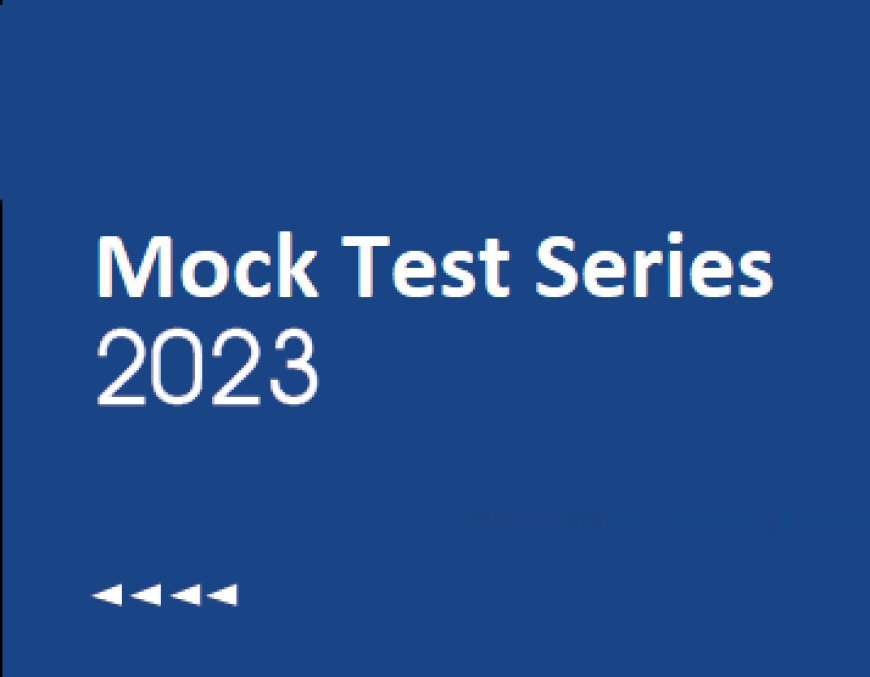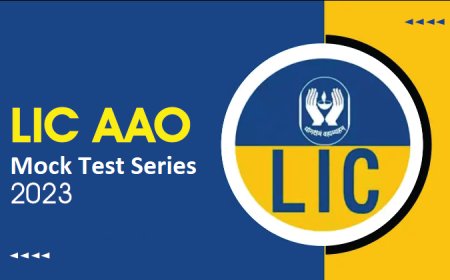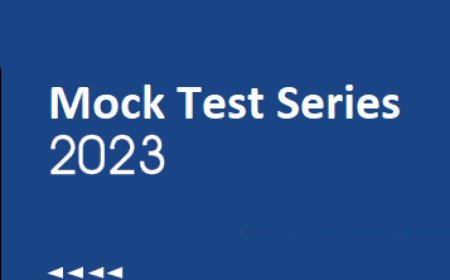AAO Exam-CT 12: Quant (Interest)
AAO Exam-CT 12-Quant (Interest)

-
Rs. 850
-
Rs. 900
-
Rs. 880
-
None of these
Given:
Simple interest = Rs. 800, at the rate of 10% and time = 2 years
Formula used:
If P = Principal, R = Rate of Interest, and T = Time Period; then:
Simple interest = (P × R × T)/100, and
Compound interest = P(1 + R/100)t - P
Calculation:
800 = (P × 10 × 2)/100
⇒ P = 4,000
Now, C.I = 4,000[(1 + 10/100) - 1] = 4,000 × (21/100) = Rs. 840
∴ Compound interest is Rs. 840
 Alternate Method
Alternate Method
SI for 2 years = 400
[We know that the SI will be uniform for the given period]
SI for first year = 400 and SI for 2nd year = 400
We also know that, SI and CI for first year is same
∴ CI for First year = 400
CI for Second year = 400 + 400 × 10% = 440
Hence, Total CI = Rs. (400 + 440) = Rs. 840
-
Rs. 5,00,000
-
Rs. 5,50,000
-
Rs. 5,80,000
-
None of these
Given:
Compound interest = Rs. 142464, at the rate of 12% and time = 2 years
Formula used:
If P = Principal, R= Rate of Interest, and T = Time Period, then:
Simple interest = (P × R × T)/100, and
Compound interest = P(1 + R/100)t - P
Calculation:
C.I = P[(1 + 12/100)2 - 1]
⇒ 142464 = P[(28/25)2 - 1]
⇒ 142464 = P(159/625)
⇒ P = 142464 × (625/159)
⇒ P = Rs. 560000
So, S.I = (560000 × 15 × 7)/100 = Rs. 588000
∴ The simple interest on the sum at rate of 155 per annum for 7 years is Rs. 588000
3. Prathamesh borrowed certain amount from Gururaj. The difference between simple and compound interests compounded annually on that sum of money for 2 years at 4% per annum is Rs. 1. The sum is:
-
Rs 500
-
Rs 600
-
Rs 450
-
None of these
Given:
Compound Interest – simple interest = 1
Formula:
Compound interest = P × (1 + R/100)n − P
Simple Interest = principal × rate × time/100
Calculations:
Let the sum be Rs. x then,
Compound Interest = x(1 + 4/100)2 – x
⇒ (676/625)x – x
⇒ (51/625) x
Simple Interest = x × 4 × 2/100
⇒ 2x/25
⇒ 51x/625 − 2x/25 = 1
⇒ x = 625
∴ The sum is Rs 625
-
1500
-
1400
-
800
-
None of the these
Given:
A debt of 22800 due in 10 years at 20% simple interest
Formula used
If borrowed amount be B and it is paid in equal installments
B = na + (ra/100 × Y) × n(n-1)/2
Where Y= number of installments per annum
Calculation
We know that,
B = na + (ra/100 × Y) × n(n-1)/2
Where Y= number of installments per annum
a = annual installment
Here M = 22800, y=1, r =20, n=10,
Put the value,
22800 = 10 a + 20a/100 × 10(10 -1)/2
22800 = 10a + 9a
22800 = a[19]
a = 1200
∴ Annual installment is Rs. 1200
 Alternate Method
Alternate Method
Given:
Rate = 20%
Time = 10 years
Amount = 22800
Concept used:
Annual installment = (100 × A)/[100 × T + {R × T( T – 1)}/2]
Where,
A → Amount
T → Time
R → Rate
Calculations:
Annual installment = (100 × A)/[100 × T + {R × T(T – 1)/2}]
⇒ (100 × 22800)/[100 × 10 + {20 × 10(10 – 1)/2}]
⇒ (100 × 22800)/{1000 + (20 × 10 × 9/2)}
⇒ 2280000/(1000 + 900)
⇒ 2280000/1900
⇒ Rs. 1200
∴ Annual installment is Rs. 1200
5. Keya borrows Rs 25000 from shree at 10% compound rate of interest. At the end of each year she pays Rs 8000 back to shree. At the end of year 3 how much amount would be left for her to pay?
-
Rs 5845
-
Rs 7965
-
Rs 4795
-
Rs 7435
Formula used:
C.I= P ((1 + (r / 100)) N -1))
Where, P = Principal amount,
R = Rate of interest
N = Number of years
Calculation:
Amount to be paid at end of year 1 = 25000 × (1 + 0.10)
⇒ Amount = 27500
⇒ P for Year 2 = 27500 – 8000
⇒ P = 19500
⇒ A for year 2 = 19500 × 1.10
⇒ A = 21450
⇒ P for year 3 = 21450 – 8000
⇒ P = 13450
⇒ A for year 3 = 13450 × 1.10
⇒ A = 14795
⇒ P for year 4 = 14795 – 8000
⇒ P for year 4 = 6795
∴ at end of year 3 keya will have to pay Rs 6795 to shree
6. Find the amount when Rs. 5000 is put on compound interest for 3 years at 10%, 15%, and 20% for first, second, and third year respectively.
-
8000
-
4320
-
6520
-
7500
Formula Used:
Amount = P (1 + R1/100) (1 + R2/100) (1+R3/100)
Calculations:
⇒ Amount = 5000 (1+10/100) (1+15/100) (1+20/100)
⇒ 5000 × 11/10 × 23/20 × 6/5
⇒ Rs. 7590
∴ Amount is Rs. 7590
-
25,007.5
-
17,092.5
-
20,095
-
17,095
Calculation:
SI = (50000 × 3 × 2)/100
⇒ 3000
Amount = 50,000 + 3000
⇒ 53,000
Principal for CI = 53,000
CI = 53,000 × (1 + 15/100)2 – 53,000
⇒ 53,000 × (115/100)2 – 53000
⇒ 53,000 × (115/100) × (115/100) – 53000
⇒ 17,092.5
∴ Total interest = 3000 + 17092.5
⇒ Rs. 20,092.5
The total interest made by Ravi is Rs. 20,092.5.
-
4 years
-
2 years
-
5 years
-
1 year
GIVEN :
Rate of interest for two funds are 20% and 10% respectively and after some years ratio of amount received is 1728 : 1331
FORMULA USED :
A=P(1+r100)n
Where, A = amount (principle + interest), P = principle, r = rate of interest, n = number of years
ASSUMPTION :
Let us assume the principle invested by Anik in each of the funds is P and the time of investment is n.
CALCULATION :
Amount after n years in first fund = P(1+20100)n
Amount after n years in second fund = P(1+10100)n
ATQ,
P(1+20100)n/P(1+10100)n=1728/1331
⇒ 12n11n=1728/1331
⇒ 12n11n=123113
⇒ n = 3 Time of investment = 3 years
9. Three equal installments, each of Rs. 300, were paid at the end of the year on a sum borrowed at 20% compounded annually. Find the sum.
-
Rs. 530.945
-
Rs. 603.945
-
Rs. 731.945
-
Rs. 562.455
Given:
The Rate of interest is 20 %
The Installment is Rs. 300
Number of installment is 3
Formula used:
P( 1+ R/100)n = X( 1+ R/100)n-1 + X( 1+ R/100)n-2 + X( 1+ R/100)n -3 + X( 1+ R/100)n-4 + ----
Where,
P = principal
R = Rate
n = number of installments
X = amount of installment
Calculation:
P(1 + 20/100)3 = 300(1+20/100)2 + 300(1 + 20/100)1+ 300
⇒ P(1.2)3 = 300 × 1.44 + 300 × 1.2 + 300
⇒ P(1.2)3 = 432 + 360 + 300
⇒ P = 631.945
∴ The sum is Rs. 631.95.
-
449%
-
21617%
-
3%
-
249%
Given:
Ratio of principal and amount = 9 : 17
Ratio of principal and amount after 8 years = 3 : 7
Formula used:
I=P×t×r100
Where P = Principal, t = time, r = rate of interest, I = interest
Calculation:
Let principal and amount be 9x and 17x
After 8 years it will become 3y and 7y
⇒ As we know principal will be same for the cases
9x = 3y
⇒ x/y = 3/9 = 1/3
So, amount will be 17x = 17
⇒ 7y = 21
⇒ Interest = (21 – 17) = 4
⇒ 4=9×8×r100
⇒ r = 50/9%
∴ Rate of Interest is 559%

Interest always calculated on principal in case of simple interest.
⇒ 4=17×8×r100=5017=21617 [Wrong]




